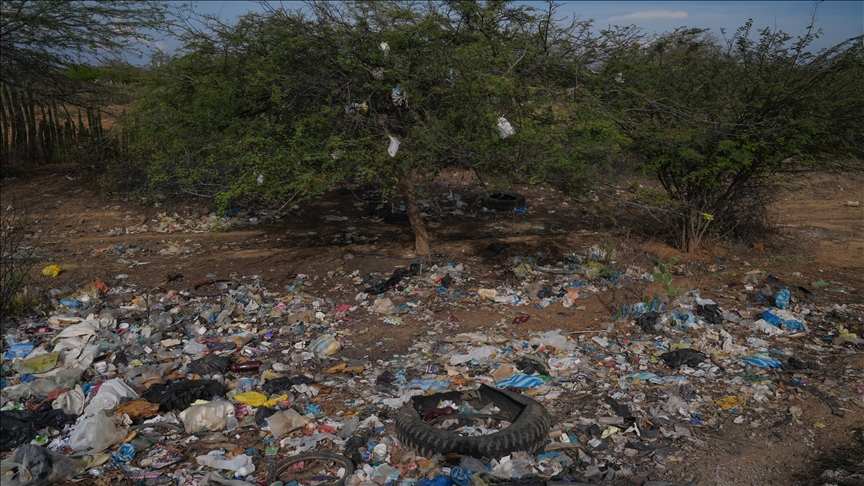Global plastic trade surpassed $1.1T in 2023, with 75% being waste: UN agency
In 2023, global trade in non-plastic natural substitutes reached $485B, according to UN Trade and Development

- 'However, high tariffs, limited market access, and weak regulatory incentives hinder the scale-up of these sustainable alternatives,' agency says
ISTANBUL
The global plastic trade in 2023 exceeded $1.1 trillion, accounting for 5% of global goods trade, while 75% of plastics become waste, much of which leaks into oceans and ecosystems, according to a report by the UN Trade and Development (UNCTAD) released on Thursday.
"This growing imbalance threatens public health, food systems, ecosystems, and long-term development, especially in small island and coastal nations," the UNCTAD said in a statement.
The global plastic production amounted to 436 million metric tons in 2023, according to the report.
The statement noted that the average Most Favored Nation (MFN) tariffs on plastic and rubber products fell from 34% to 7.2% over the past three decades, making fossil fuel-based plastics "artificially" inexpensive.
Conversely, natural alternatives such as paper, bamboo, natural fibers, and seaweed face average MFN tariffs of 14.4%.
"These disparities in how materials are treated discourage investment in alternative products and hinder innovation in developing countries that aim to export safer and more sustainable alternatives to fossil fuel-based plastics," it said.
Although plastics are directly linked to the triple planetary crisis, which includes pollution, biodiversity loss, and climate change, no comprehensive international treaty governs their composition, design, production, trade, and disposal, according to the agency.
"With 98% of plastics derived from fossil fuels, emissions and environmental damage are expected to rise without coordinated multilateral action. Efforts to address these issues have been fragmented and incremental since the late 1980s," the statement noted.
Many countries are limiting the flow of dangerous plastics through non-tariff measures (NTMs), such as product standards, labeling regulations, and prohibitions.
Nonetheless, the agency says that the inconsistency between these standards delays commerce in safer and more sustainable products while increasing compliance costs.
Small companies and low-income exporters frequently find it difficult to comply with conflicting or overlapping regulations, which restrict their capacity to conduct sustainable trade.
In 2023, global trade in non-plastic natural substitutes reached $485 billion, with developing countries experiencing annual growth of 5.6%.
"However, high tariffs, limited market access, and weak regulatory incentives hinder the scale-up of these sustainable alternatives," it said.
To reduce plastic flows and pollution, the agency proposed tariff and NTM reforms to encourage sustainable substitutes, investment in waste management and circular infrastructure, digital tools for traceability and customs compliance, and policy coherence across the World Trade Organization (WTO), United Nations Framework Convention on Climate Change (UNFCCC), Basel Convention, and regional frameworks.
Anadolu Agency website contains only a portion of the news stories offered to subscribers in the AA News Broadcasting System (HAS), and in summarized form. Please contact us for subscription options.







